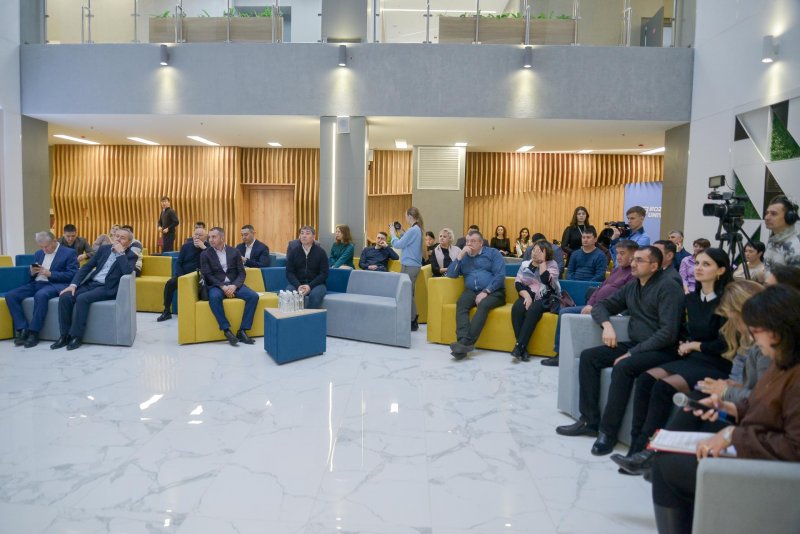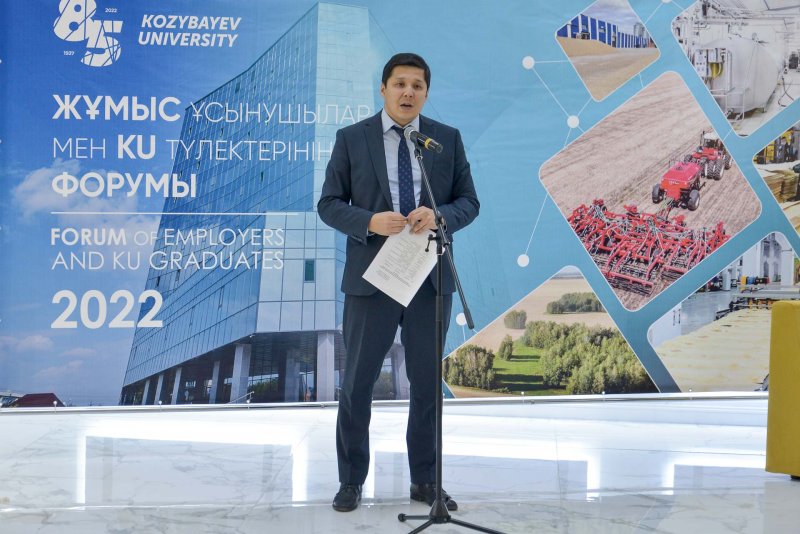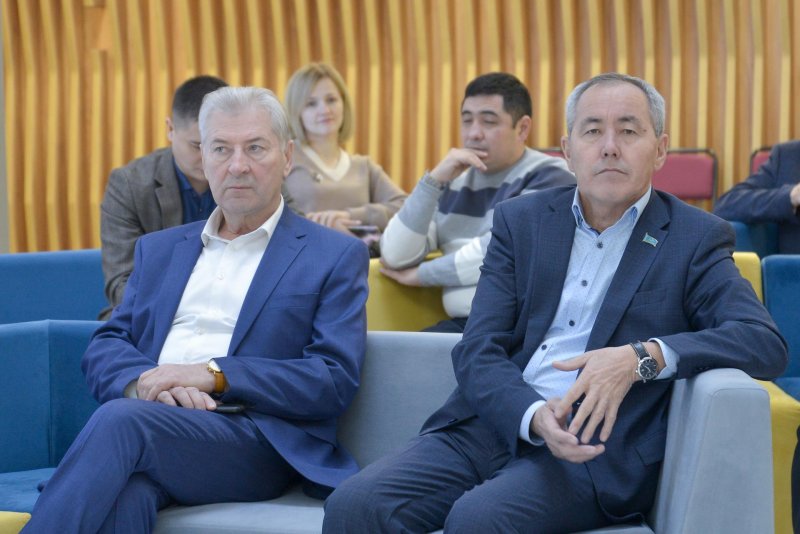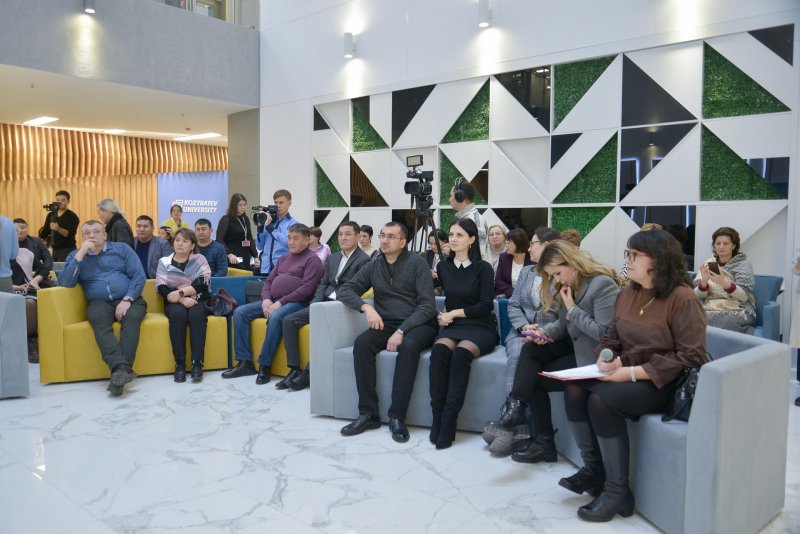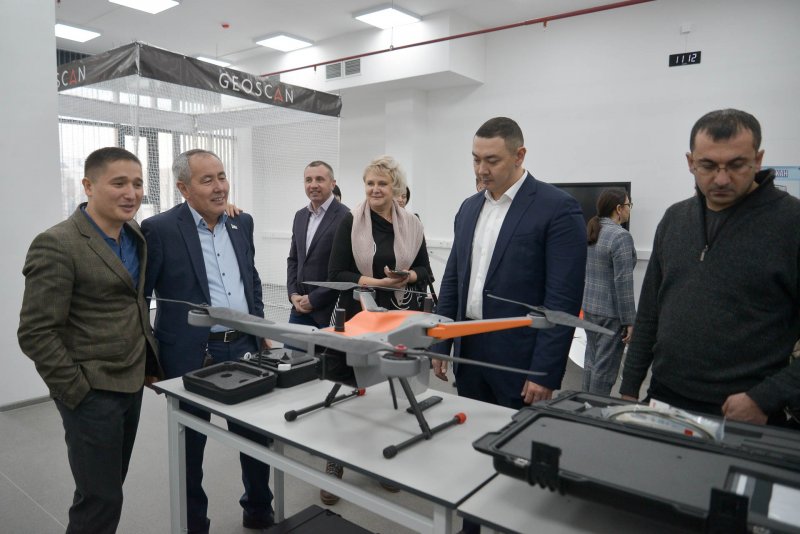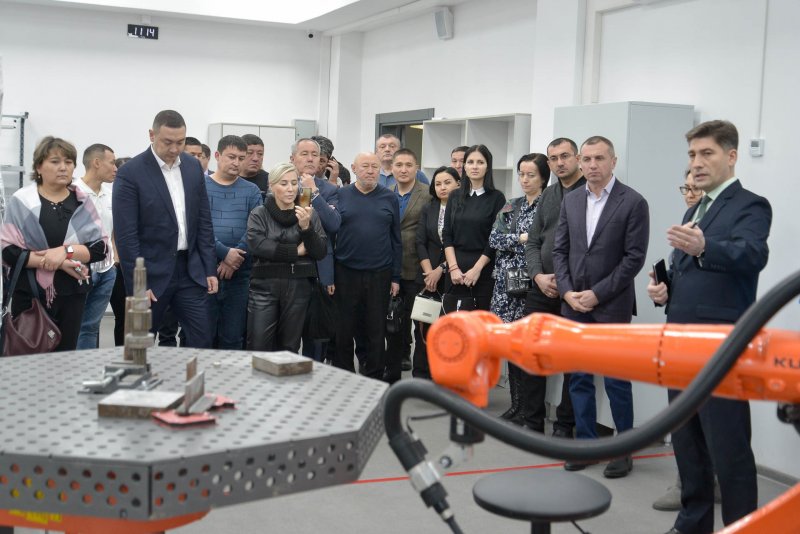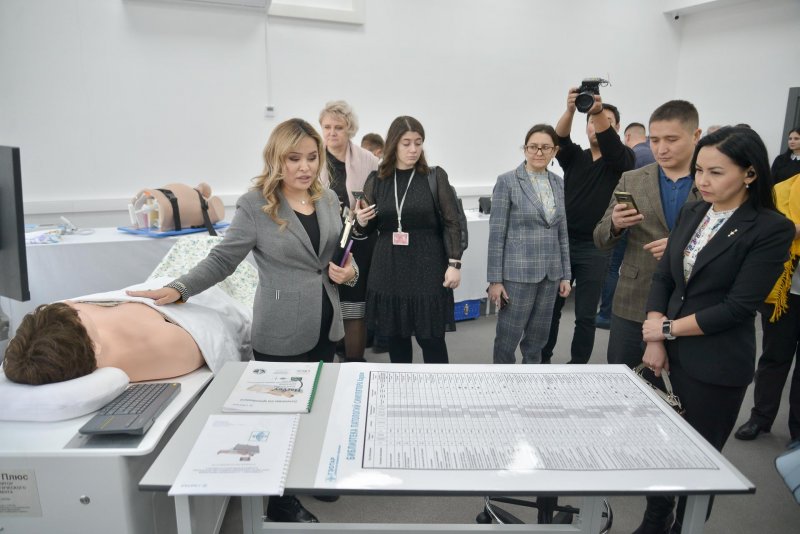Quotation gallery
You cannot teach a man anything; you can only help him find it within himself.
Solving the issue of theoretical staffing
Kozybayev University Employers and Alumni Forum. More than 40 representatives from different sectors of the economy: from agriculture to education. Heads of the largest agricultural enterprises, processing companies, factories, banks, schools in the region. This was the first time the university was trying to build a dialogue with stakeholders and the business community at such a high level.
The main points to be solved were: the effective carrying out of industrial practice by students, interaction in the sphere of science, and changes in educational programs based on the demands of the labour market.
Speaking to colleagues, the Chairman of the Board, Rector Yerlan Shulanov, invited employers to take part in projects of commercialization of university research, and to express their ideas, the implementation of which will solve specific production problems.
He also noted that the problems with theoretical training in higher education can be closed by introducing the content needed in production to the curriculum. "We take away our theoretical block and add what business needs. This could be work on modern equipment installed at the enterprise; more in-depth study of cases required by the employer, etc.," Rector Yerlan Shulanov.
The university is willing to discuss the issue of student employment, as today these are the new realities of the labour market. Also, to be more flexible, so that the internships can be tailored to the employers' needs (during harvesting or sowing campaigns, for example).
What else is being done to make students more practice-oriented?
1. Certification centres have been opened at the university. For instance, 1C-Center allows future accountants, leaving their alma mater, to obtain, free of charge, an original certificate confirming their mastery of 1C-software.
2. Getting a job. For over 10 years, students of technical and agricultural areas have the opportunity during their studies to get a job specialty. For instance, technologists are qualified as cooks and engineers as mechanics or milling operators.
3. The opening of branded classrooms from employers. This expands students' knowledge about the company and becomes a platform for joint projects.
4. More than 60 employers are involved in the Academic Committee and participate in the development of EPs.
5. 28 employers participate in the examination of students by being included in the attestation committees at the faculties.
6. More than 20 employers teach as guest lecturers.
7. Personal scholarships of employers have been established.
8. The amount of internship for students has been revised. Today it occupies 20% of the curriculum. Grades for internships are given by the employer.
9. The university has opened an international IT-school, which allows students to obtain an international certificate with market access during their studies.
10. An applied bachelor's degree is opened. This is a pilot project. Only a few HEIs in RK have received quotas. There is only paid training on "Agronomy" program here. Allows to get higher education in 2-2.5 years.
11. Profile one-year master's program. Project for NKU only (50% of training time on-the-job, no English).
The outcome of the meeting will be the establishment of the University Industrial Council which will consist of employers and members of the Alumni Association. Work on all the outlined vectors of interaction will be continued.


